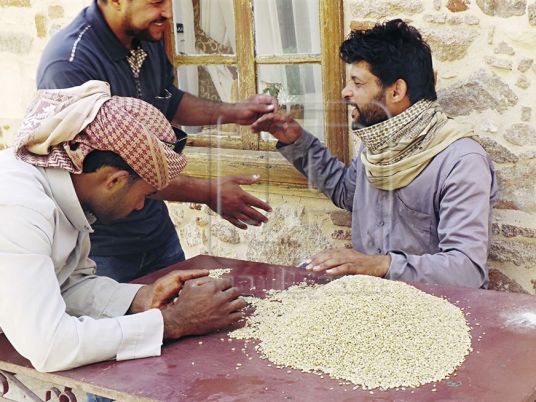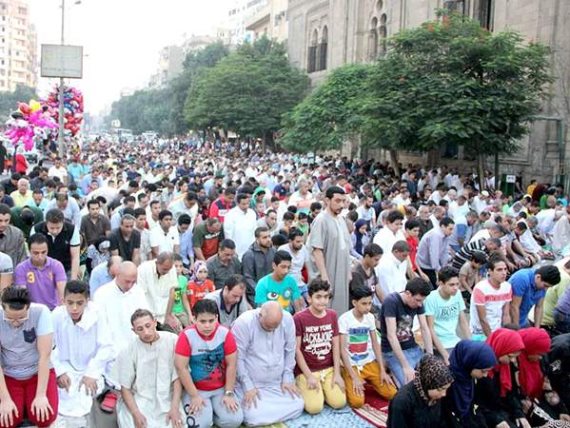
Between the minaret of the Fatimid mosque and the bell tower of the church at Saint Catherine's Monastery, south Sinai, lies a place of peaceful coexistence between Muslims and Christians.
During the Muslim holy month of Ramadan, bedouin Muslims can be seen working in the monastery; a phenomenon particular to this unique little corner of the world.
Muslims pray inside the historic Fatimid mosque, built by monks during the reign of the sixth Fatimid caliph, Al-Hakim bi-Amr Allah. But they are also able to pray anywhere within the walls of the monastery and in front of the main gate.

The monks of the monastery mark the month of Ramadan by preparing and serving a meal for the breaking the fast, 'iftar', attended by bedouins and residents of the nearby city of St. Catherine.
The chief of al-Jebaliah tribe in St. Catherine, Sheikh Ahmed Mohammed al-Jebali, says that bedouin Muslims have had ties to the monastery since the sixth century when they came from Montenegro, Serbia and the Western Sahara in Egypt, before the advent of Islam. Charters and covenants linking the tribes to St Catherine's have been handed down through the generations till the present day.
The Jebaliah tribe's relationship with the site was established after Emperor Justinian I (527-565) sent men to construct and maintain the monastery. They married and lived out an ethos of coexistence between Islam and Christianity, hiring bedouins for manual labor.
Jebali adds that even after Islam came to Egypt, the monastery acted as an extension of the tribe to the bedouins; a supporting community helping the needy, taking in orphans and providing help to those in need.
Jebali says the monastery brings doctors from Greece for a month each year to treat the tribe.
He explains that there are 85 Muslim workers living, working and praying within the walls of the monastery. The monastery provides them with food for 'iftar' and 'suhur', the last meal before dawn during Ramadan.
For its part, says Jebali, the tribe supplies the monastery with fruit and firewood.
The tribal chief estimates that there are around 1050 workers affiliated with the monastery.

He says that the bedouin Muslims celebrate Easter with the priests and monks of the monastery, while their Christian counterparts celebrate tribal weddings and help construct houses.
Mukhtar Hussein, one of the workers at Saint Catherine's Monastery, said that during the fasting hours of Ramadan the monastery management slackens off the Muslims' workload.
Gregrios al-Sinai, a monk at the monastery, said that the monastery organizes 'iftar' for all Muslims of the city of St. Catherine, noting that throughout history those of both religions have been drawn to the monastery because of its model of love and tolerance.






